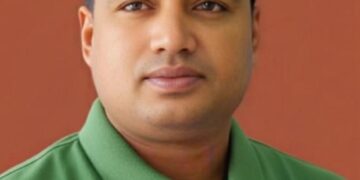Juyel Raaj
Leading British lawyers and members of parliament have called for inclusive elections and justice in Bangladesh that meet international standards. This was the demand made by speakers at a seminar on “Political Institutions, Economic Structures and Social Systems – Revitalizing and Reforming” held in the Seminar Room of the House of Lords yesterday. The event was co-hosted by Sujit Sen at the invitation of Lord Carlyle.In the seminar’s keynote address, John Cammeg Casey mentioned in his talk titled Reunion Not Revenge:He was appointed as the lawyer for the top leaders of Jamaat-e-Islami, who were accused of crimes against humanity and war crimes in the ICT Tribunal in 2011. He said that I spoke about the serious flaws of this ICT law at that time. I spoke about it in various places around the world, including the United Nations and the European Union. Most people had no idea about it.In his speech, he spoke about the shortcomings of the current ICC law, and noted that Bangladesh has missed the opportunity for inclusion or full reunification. What did Professor Yunus’ interim government do? He mentioned that they have reduced the I-City to dust, if one looks at Sheikh Hasina and other Awami League leaders and one seriously claims that this is a politically motivated trial and the continued failure of the tribunal is its continued use of the death penalty. He said it was an opportunity: The government could, for example, lead by abolishing ICT and severing ties with the past by filing a case in a domestic court under domestic law against Sheikh Hasina. Unfortunately, it seems that this is Hasina’s precious judgment, we call it victor’s justice. But it has not brought justice to the Bangladeshi people: communal violence, damage to religious sites, a ban on the Awami League indicate that rather than drawing a line in history, the 2024 uprising is just another twist in a vicious cycle, where the next government is likely to be effectively another one-party government after the February elections. The reality is simple: democracy is not possible without open justice, and open politics. A government that gains power by silencing its opposition, afraid of dissenting voices, is a weak government, which will only be weaker. Silencing dissent, no matter how unpopular it is among moderate Bangladeshis, is a way of life for the people, and dissent goes underground. It only gets worse. The more widespread dissent, the more unstable and violent a nation becomes. The less governments and businesses outside Bangladesh want it, the more unstable the country becomes. Investment: Investment has fallen dramatically. Underinvestment destroys growth. It has collapsed. Growth creates poverty; poverty breeds dissent, and the cycle spirals downward until the next crisis tears the country apart.Lord Carlisle KC, Iain Duncan Smith MP, Simon Dunszak Ex MP, and Alice Stuttaford, senior policymaker to Sir Iain Duncan, MP for Chingford and Woodford Green, took part in the discussion. Their statement said, Given the uncertainty, political divisions, social anxieties and economic turmoil prevailing in Bangladesh, Bangladesh needs a truly participatory, inclusive and free and fair election as a priority. An elected government is needed to reform governance and provide a healing touch to society and ensure that the derailed economy is put back on track. A Truth and Inclusion Commission has long been needed in Bangladesh’s conflicted and conflicted society. The existing political divisions and difficult unresolved differences need to be rectified and resolved. Bangladesh’s minorities have always been the worst victims of a systemic oppression. Minorities must be assured and guaranteed the safety and security of their lives, property and livelihoods. Like any civilized society, they need to protect and safeguard their beliefs and the symbols of their faith.To ensure Bangladesh’s rebirth as a resurgent economy, inclusive politics, and a caring society, a reformed political system must be initiated. All ideals and all parts of politics must be brought into line for the reconstruction of the country and society. “For the reconstruction of the country and society. Only then will Bangladesh be able to claim its rightful place in the community of nations.”The seminar also included readings of separate statements made by Bob Blackman MP and Lord Carlyle on the Bangladesh issue, where They called for ensuring a free, fair, transparent, participatory and inclusive election in Bangladesh. And Although the Yunus government took power with the promise of restoring the rule of law and ensuring justice and fairness, it could not fulfill its promises. In the seminar, BNP International Affairs Secretary Mahidur Rahman, Jamaat-e-Islam’s Europe Spokesperson Barrister Abu Bakkar Mollah, BNP Think Tank Member Professor Aliyar Hossain highlighted the notable achievements of the interim government of Bangladesh. Mr. Abu Bakar Mollah mentioned that the current government is working with importance on these three tasks: free and fair elections, trial of Sheikh Hasina and control of the law and order situation. Barrister Prashant Barua, Ed. Pappu Saha discussed on behalf of the minority community.
See the statement DOC-20251125-WA0009.





